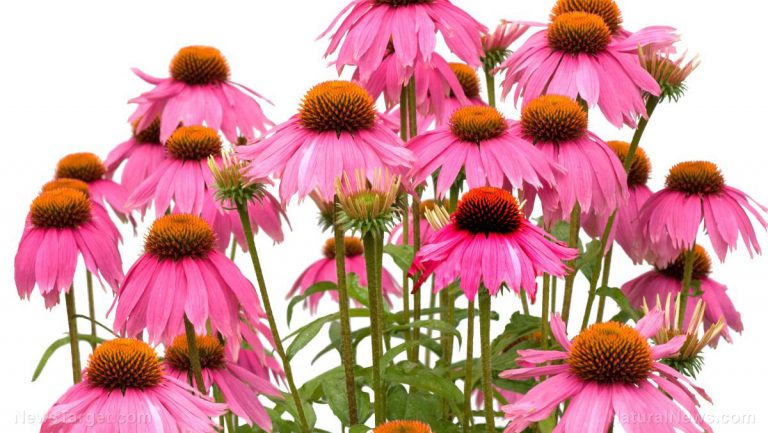
Can you recall the last time you were stressed? If you’re like most people, you probably don’t have to think too far back to come up with a stressful moment – or perhaps you feel that way all the time. Many of us are feeling the effects of our busy lives and the constant technological overstimulation we’re exposed to, and this can take a serious toll on your health. Getting rid of stress is easier said than done, so how can you protect yourself from the diseases this stress can cause? Scientists have found one very useful tool in the form of echinacea.
A study that was recently published in the Journal of Medicinal Food found that echinacea can help to protect against changes produced by stress in the immunological function of mice. The attractive purple flower, which grows wildly across the eastern and central U.S., has long been used in traditional medicine. It is known for its immune enhancing and anti-inflammatory properties.
In the study, scientists looked at an ingredient taken from the dried and pressed juice of the echinacea plant known as echishield. Seventy mice were divided into five groups that included a control and those who were given various dosages of echishield or a saline treatment. The researchers induced immunosuppressive conditions in every group except the control and supplemented them with the Echishield or saline daily over a period of two weeks.
After analyzing immune function and infection-fighting markers in the mice’s spleens as well as their blood, the scientists discovered that the echishield actually brought the stress-induced immunity changes in mice back to the normal levels seen in unstressed, healthy mice.
The power of the elements: Discover Colloidal Silver Mouthwash with quality, natural ingredients like Sangre de Drago sap, black walnut hulls, menthol crystals and more. Zero artificial sweeteners, colors or alcohol. Learn more at the Health Ranger Store and help support this news site.
Stress protection one of many echinacea benefits
Protecting the body from stress is tremendously valuable these days, but echinacea also provides a host of other useful benefits. For example, it can protect the body against cellular damage from radiation, and it can reduce the side effects of chemotherapy as well.
One of the biggest reasons many people take echinacea extract or tea, however, is because research has shown that regular use can help reduce your chances of getting a cold by as much as 50 percent. Studies have also demonstrated that it is just as effective as Tamiflu at helping people recover from flu. This is excellent news for those hoping to avoid the controversial antiviral drug and its slew of scary side effects. In the study, those who took echinacea extract also experienced less vomiting, nausea, and gastrointestinal upset than those taking Tamiflu.
It is also anti-fungal, anti-inflammatory, and antibiotic, and it’s often used to make a gargle for a sore throat. It can be used topically to address insect bites and other skin issues, and it can keep certain types of infections from recurring. It also has the power to reduce joint swelling and relieve respiratory problems like bronchitis.
Echinacea’s star on the rise
This wealth of benefits could help explain why market research shows the use of echinacea in drinks, foods and supplements has been steadily climbing. From 2013 to 2017, echinacea products grew by eight percent annually; more than half of these products were dietary supplements. Hot drinks made with the flower noted an annual growth rate of 23 percent during the same period.
Echinacea could be a viable option for keeping stress from impacting your health too much, but it’s also important to consume a healthy diet rich in organic fruits and vegetables and get regular exercise; even a short walk can make a difference. Consider devoting a few minutes each day – or as much time as you can spare – to mindful meditation, art, music and other calming activities. You may be surprised by how much of a difference it can make.
Sources for this article include:
NutraIngredients-USA
NaturalPedia
NaturalNews
NaturalNews
